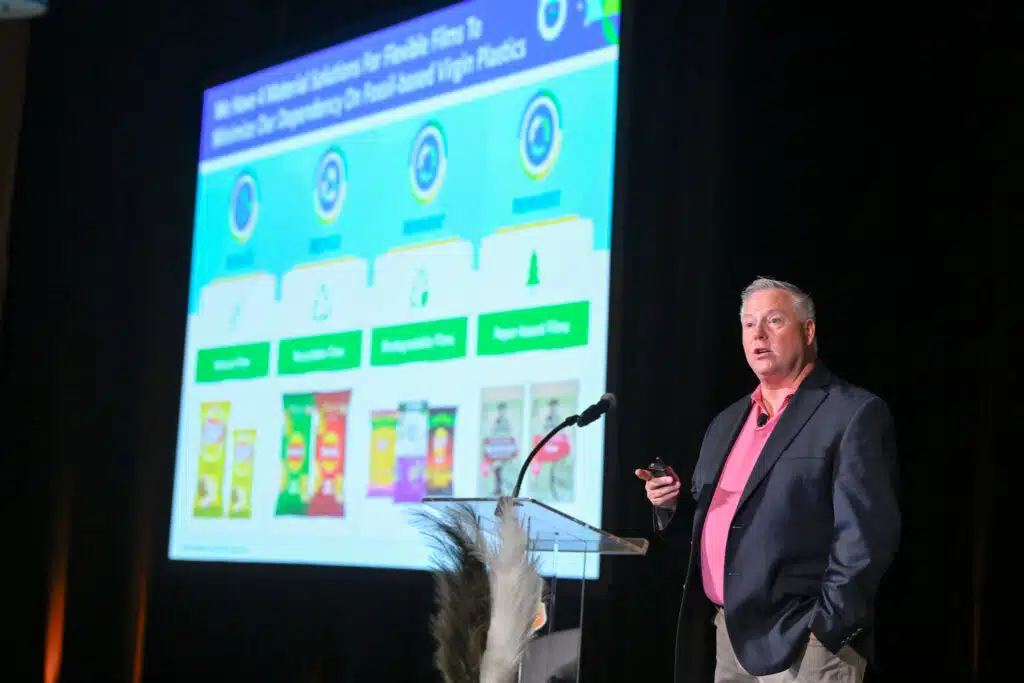18 Jul Convention 2024 – PepsiCo Foods Journey to RCBR Compliance
On Saturday, June 29, BEMA Convention 2024 guests welcomed Rob Cotton, R&D Director, Packaging Sustainable Materials, PepsiCo who discussed how the company is proactively developing a range of new biodegradable materials to adapt to the evolving regulatory environment of RCBR (Recyclable, Compostable, Biodegradable and Reusable) compliance.
The global calamity of plastic pollution is no small matter. Many agree the problem is significant and highly actionable, but few can agree on how to handle such a big issue. Regulations coming down the pipe look to curb the problem, but recycling doesn’t always address these issues and the product might still end up in the environment.
Global snack producer PepsiCo is looking to change the trajectory by sharing its journey toward RCBR compliance in the design and implementation of products, packaging and systems. RCBR compliance ensures the products, packaging and systems produced are environmentally friendly, sustainable and meet the necessary requirements.
PepsiCo’s Greenhouse Learning Center is proving to be an instrumental tool in improving the speed of developing RCBR-compliant packaging. With more than 200 samples under testing, the Greenhouse Learning Center is helping to demonstrate the benefits of biodegradable packaging.
Working on a model to reduce, recycle and reinvent, the company is looking at solutions for flexible films that minimize dependency on fossil-based virgin plastics. It’s a big conversation, one that must include talking about the packaging and the products inside and what to do with the packaging afterward.

The landscape of flexible films recycling is diverse, but The Greenhouse Learning Center has been instrumental in exploring its vast depth. End-of-life ecosystem development and scaled learning pilots are providing insight on circularity to flex films with ongoing partnerships looking at sustainability.
But one of the biggest challenges lies at the consumer point. Currently, there is no collection point for the recovery of these flexible packaging materials that necessitate closed containers. This is a significant complication because these products are often eaten away from home (parks, beaches, lakes) where there are open trash bins where the lightweight packaging can blow out. Plus, consumer behaviors around trash and recycling are difficult to reform.
Additionally, material recovery was designed in the 1980s and often is not equipped to recycle plastics. It will take significant financial investment to bring old technology up to speed. Eventually, mechanical recycling and/or dissolution will replace pyrolysis and similar technologies as they will have better yields, and GHG and economics are enabling commerce to advance.
Things continue to evolve but those looking to demonstrate the benefits of biodegradable packaging have significant work ahead as they determine which packaging material will work best. To advance on such an important initiative, Cotton encourages communication and collaboration throughout the industry. PepsiCo is providing licensing to partners to try out biodegradable film samples themselves.





No Comments